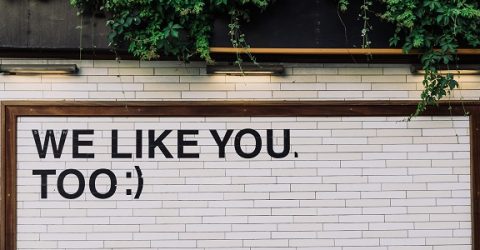Why social media is addictive – and how to manage it
Managing social media addiction has become such a pressing topic, it should arguably be taught as part of the National Curriculum

The world was a different place before social media embedded its hooks into us all.
We knew less about the world, it was harder to draw attention to injustice or malpractice, and we struggled to find people who shared our interests or worldview.
Yet it was also an easier time, with no trolling or cyberbullying, and less disconnect between our screen selves and the people we really are.
MoreTips for staying safe on social media
Today, many people find every free moment is spent staring at their phones, swiping and scrolling through an ever-changing (yet extremely repetitive) array of content.
Facebook has over two billion users, while YouTube is the world’s second largest search engine. And no self-respecting professional would be without a LinkedIn profile these days.
If we’re not consuming content, we’re creating it – repeatedly photographing everything from our breakfast to our children, looking for the shot that will make our lives look most idyllic.
Such pretensions and obsessions are causing us irreparable mental harm, and they’re clear signs of widespread social media addiction.
Once a ladder, now a crutch
Social media is deliberately addictive, pulling us into a sea of engagement. It’s free to use, yet we still end up paying a high price.
More time on a desktop platform (or its easy-to-use smartphone app) means more opportunity for the network to display adverts, while harvesting user data.
It’s this data which social media companies sell to advertising and marketing agencies, to pay their overheads and shareholders.
The more you engage with social media, the more personally identifiable information (PII) you surrender. We explained what social media sites do with harvested data earlier this year.
Like gambling, social media can evolve from fun to compelling without people even noticing.
Do anything enough, and it’s hard to imagine not doing it, especially since social platforms are engineered to leave us wanting to scroll down and read on just a bit more.
Like any addiction, the initial thrill of multiple comment likes can evolve into a need that rewards your increasing time investment with dwindling levels of satisfaction.
And if you immerse yourself in a world of virtual ‘friends’, it’s hard to climb out, especially if you log into company websites or communicate with family and friends via social portals.
MoreThe high cost of free social media
Smartphones are sold with social media apps that can be disabled but not deleted – always ready to spring into life at a moment’s notice.
Social media is inescapable, even if you want to. And many people have no idea how addicted they’ve become until they can’t find their phone.
That sense of panic isn’t just because a piece of expensive technology can’t be accounted for. In many instances, it’s the addict discovering their supply has been interrupted.
Imagine spending a whole week without any social media activity. Could you do it? How would you feel? Has it become more than just a way to fill a spare five minutes?
Just as real but not as brightly lit
Real life can seem dull compared to those glowing and glossy social media timelines.
Plus, going cold turkey may be impractical during a pandemic, when real-world interactions are limited and we’re all relying on the internet for essential goods and services.
However, everyone can take steps to prevent social media addiction consuming every waking hour:
Set clear boundaries for online activity – it might be something you do while on the train to work, but not during your lunch break. Speaking of which…
Avoid using social media at bedtime. We tend to be less disciplined when we’re tired, and social media addiction will flourish if we lie in bed endlessly scrolling.
Activate smartphone support. For instance, Android 11’s Bedtime Mode stops notifications and turns the screen grey, discouraging you from spending time online.
Communicate in other ways. Phone or Skype people, or meet them. If you must correspond digitally, try to use standalone platforms like Telegram, email or SMS.
Think before you scroll. Don’t reach for the phone every ad/toilet/tea break. Your mind will benefit more from a short chat, mindfulness or making a cuppa.






